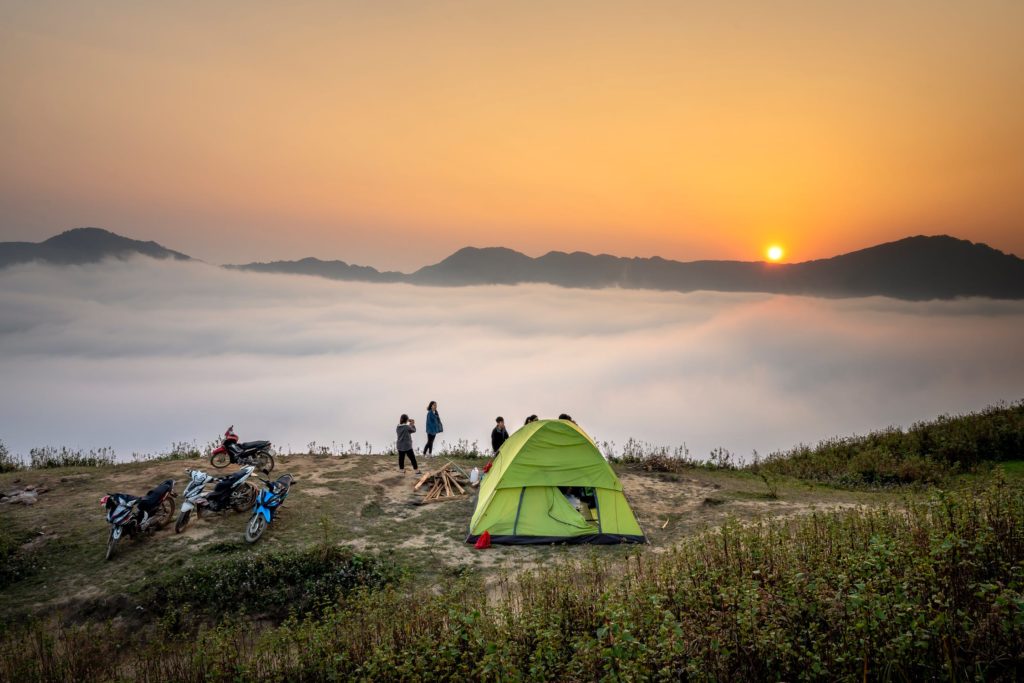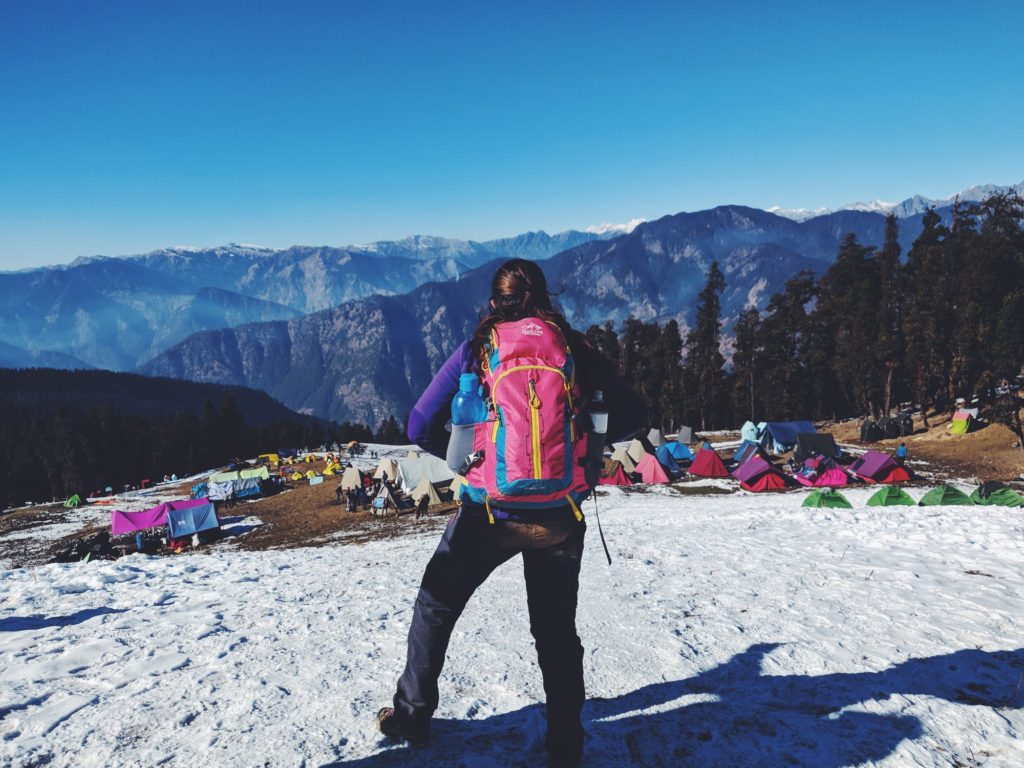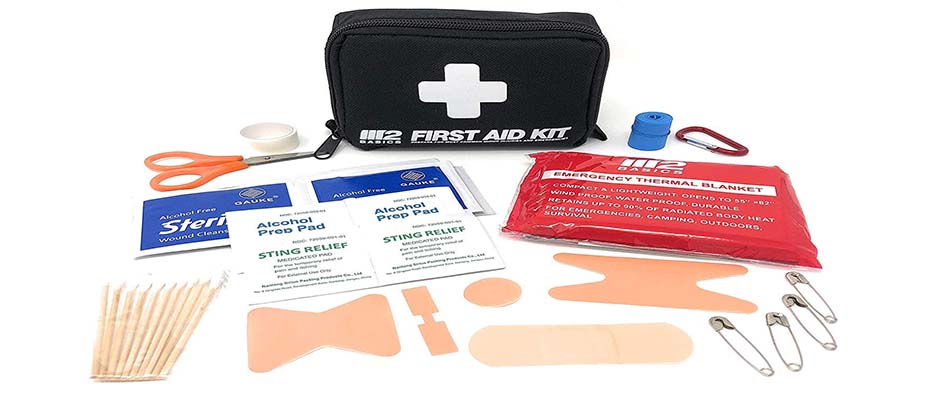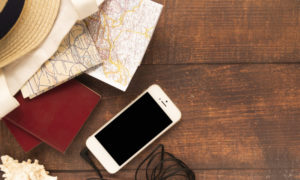Camping is such a rewarding experience; however, no matter how natural sleeping outdoors and living off the land might be, it isn’t exactly second nature to most first-timers. We aren’t saying that it’s unenjoyable, just tricky and, dare you say it, stressful. Yes, beginners’ camping can be very stressful, but it doesn’t have to be! There are a few steps and precautions that you can make to ensure that your next camping trip is as fun and memorable as it possibly can be. Follow these eight tips for stress-free camping:
1. Don’t Stray Too Far

Image source: pexels.com
If you’re unsure of your camping routine and process, or just how it is going to go, you might want to make sure that you don’t stray too far away from your home. By staying close by, instead of trekking across the country, you’ll be giving yourself a bit of a safety net. That is just in case of emergencies or maybe even if it all gets too much.
2. Keep it Short
Again, this is a safety net just in case your trip doesn’t quite go to plan. Keeping trips on the shorter side ensures that you and your co-campers manage your stay as efficiently and manageably as possible. That is key for beginners and first-time campers. You don’t want to be stuck uncomfortable and miserable for a long stint of time.
3. Prepare, Prepare, Prepare

Image source: pexels.com
Being prepared is essential for any trip, especially if you’re traveling with your kids. Find a camping packing list online, plan your food down to the last snack, and pack your kit correctly. By taking the time to prepare everything you can think of, you’re minimizing risk, disasters, and just a sub-par holiday. Start compiling a packing and planning schedule now and pin it up on the fridge to keep yourself on the straight and narrow.
4. Don’t Forget to Have Fun
That is a biggie, and lots of first-time campers tend to learn it the hard way. Yes, you’re heading out for fresh air, natural sights, and some mind-body connection – but that doesn’t mean that your very human brain doesn’t need a bit of stimulation from time to time. Avoid packing your entire desktop computer and opt for some drawing utensils, books, sports gear, and even a musical instrument. Again, this is a huge one for the little ones who need entertaining. You never know when it might rain.
5.Veer on the Minimalist Side

Image source: pexels.com
It can be very tempting to pack everything but the kitchen sink when you’re a newbie on the camping scene, but try to stick to the more minimalist side of things when you’re just starting. This one shouldn’t be hard if you’re not straying too far away from home, and your trip is shorter.
6.Invest in Your Lifestyle
Are you thinking of becoming a long time camper? Well, firstly that’s a wise choice, and secondly, you might want to consider investing in that future lifestyle of yours. If outdoor activities look are your cup of tea, check out your options for camper trailers. The comfort, convenience, and serenity they offer blow all other options totally out of the water, promise, you won’t be regretting that investment anytime soon.
7. Bring a First Aid Kit

Image source: pixabay.com
It might be annoying, but it’s essential, so bring your first aid kit for Pete’s sake! You never know what can happen, and you need to be prepared just in case of any campsite injuries. Safety first, guys, safety first.
8. Get to Know Your Neighbours

Image source: pexels.com
Finally, make sure that you make your trip enjoyable and friendly! Getting to know your campground neighbors means that you have some buddies to dine within the evenings, and you might even get introduced to your local camping community. Staying stress-free does mean staying social.
Follow Cub Campers for more camping tips and ideas for your most comfortable, breeziest camping experience yet! Whether you’re a novice or you’ve hit the grounds a couple of times, these tips are going to help you out.
Camping Tips and Tricks
- Before leaving on your long-awaited camping trip, make sure that the area where you plan to camp does not require a camping permit. If you happen to camp in a place that requires one and you don’t have it, then you could be dealing with a costly ticket or a local ranger.
- If you are traveling with children, allow them to help you when you arrive at the campsite. They can carry equipment, support you while setting up the store, and looking for firewood.
- While you may think that nature will offer enough wood to keep your embers of fire burning, you may find only moist lumber that will not burn. You must bring some of your wood with you that you can keep in a dry area.
- If you are new to the campsite, you will want to get to camp early. The reason for this is that you will be new to the camping site and the rules, and this will slow you down.
- Bring sufficient amounts of suitable types of food. It depends on how long you will be away, but you must have food that does not spoil on your trip.
- Take something to entertain you when you have some downtime. Bring some board games for the whole family, or bring a book in case you wake up earlier than everyone else.
- If you are on a camping trip and you forgot the stew bowls, make your own from empty and sizeable plastic soda bottles. Rinse the bottle and cut the plastic to the depth you need.
- You must bring food on your camping trips. You must plan what and how many meals you plan to eat before going on your journey.
- Never walk alone. Always use the buddy system.
- Food poisoning is essential to avoid when going camping. Be sure to maintain the best possible preservation to keep your food fresh for the most extended period.



















